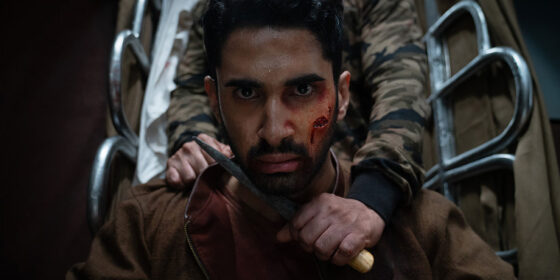TIFF 2023 | Kill (Nikhil Nagesh Bhat, India) — Midnight Madness

By Josh Lewis
There are few cinematic tools that provide as immediate elevation to a premise as the train setting does. The inherent sense of motion, propulsion, and time that it can provide a thriller especially is indispensable, which is what makes Indian filmmaker Nikhil Nagesh Bhat’s bluntly titled Kill—lost somewhere between an incredibly generic, saccharine family melodrama and winking, cult-ready gory martial arts mayhem—all the more baffling. Supposedly inspired by a series of train bandit robberies in India, Kill has exactly one very good joke in it: that every single henchman as part of this violent, invading force that needs to be stopped by the unexpected army commandos on board is a named member of a family. And so, every time one of them is brutally dispatched we are greeted by (sometimes multiple) characters finding their broken, bloody corpses and weeping in slow-motion for entire minutes. One long shot down the train compartment manages to fit so many in a single frame that it’s legitimately farcical. Unfortunately, this gag is good enough to sustain a sketch, not a 2-hour movie, and the rest of what transpires across Kill is a monotonous series of barely-outlined character personalities doing quippy humour and fairly repetitive choreography, all clumsily hung on the flimsiest of hostage rescue action-melodrama scenarios. And the way this recurring gag instructs the audience to laugh at its character’s sincerity means any legitimate attempt at romance or drama is ineffective; there’s a death that occurs around the midpoint ostensibly meant to signal a shift in dramatic cruelty that is so over the top and indulgent it just circles back around to being as light and funny as the gag ones, and at that point, all Bhat has left is the spatial/logistical situation, which he exhausts quickly and maintains very little control of the flow or rhythm of. Even Kill’s eventual splatter movie credentials (there are a few creative overkills, no doubt) still have an overly digital quality that feels at a significant remove from the tangibility and weight of the best martial arts and train cinema.
Josh Lewis

